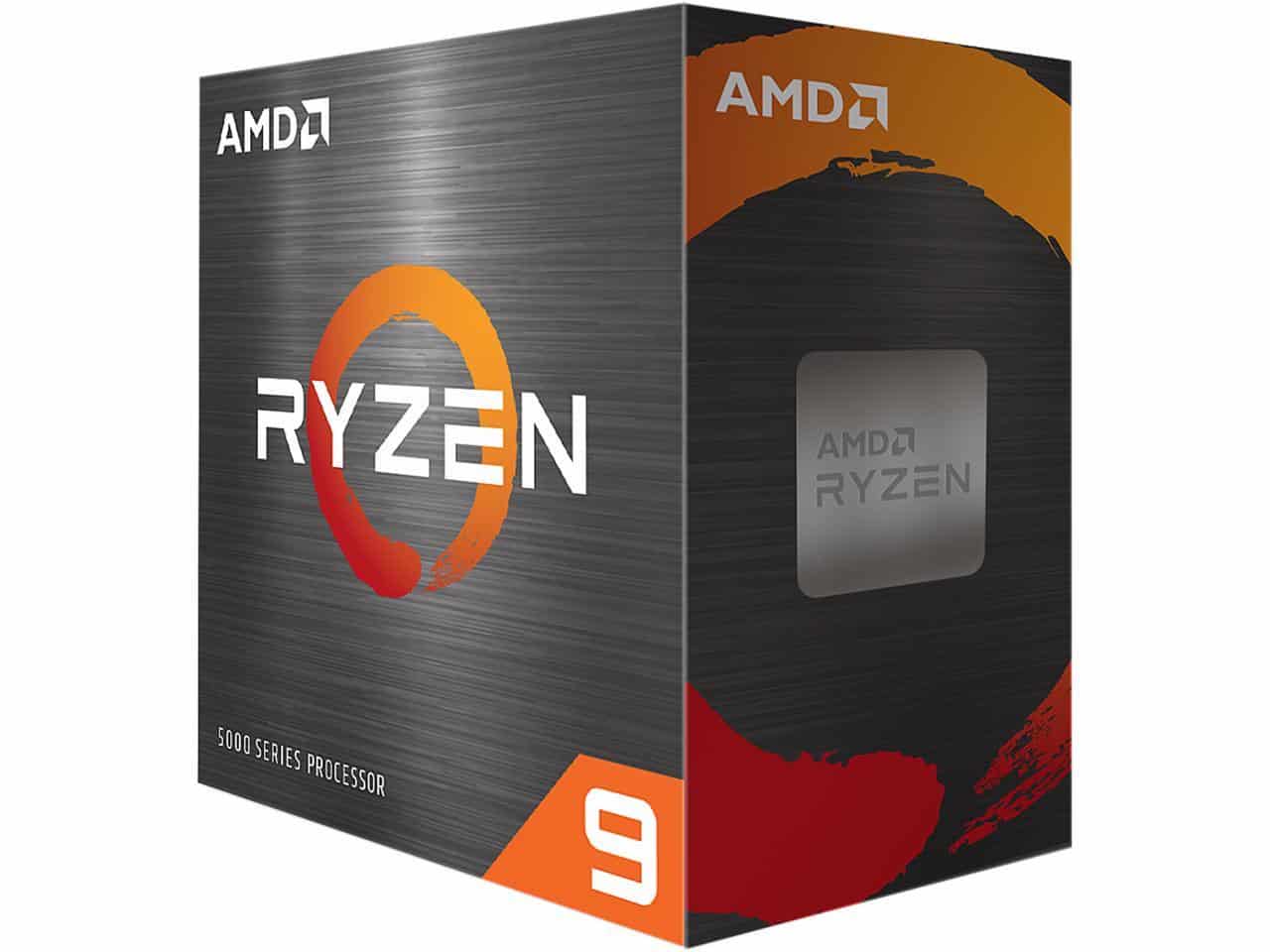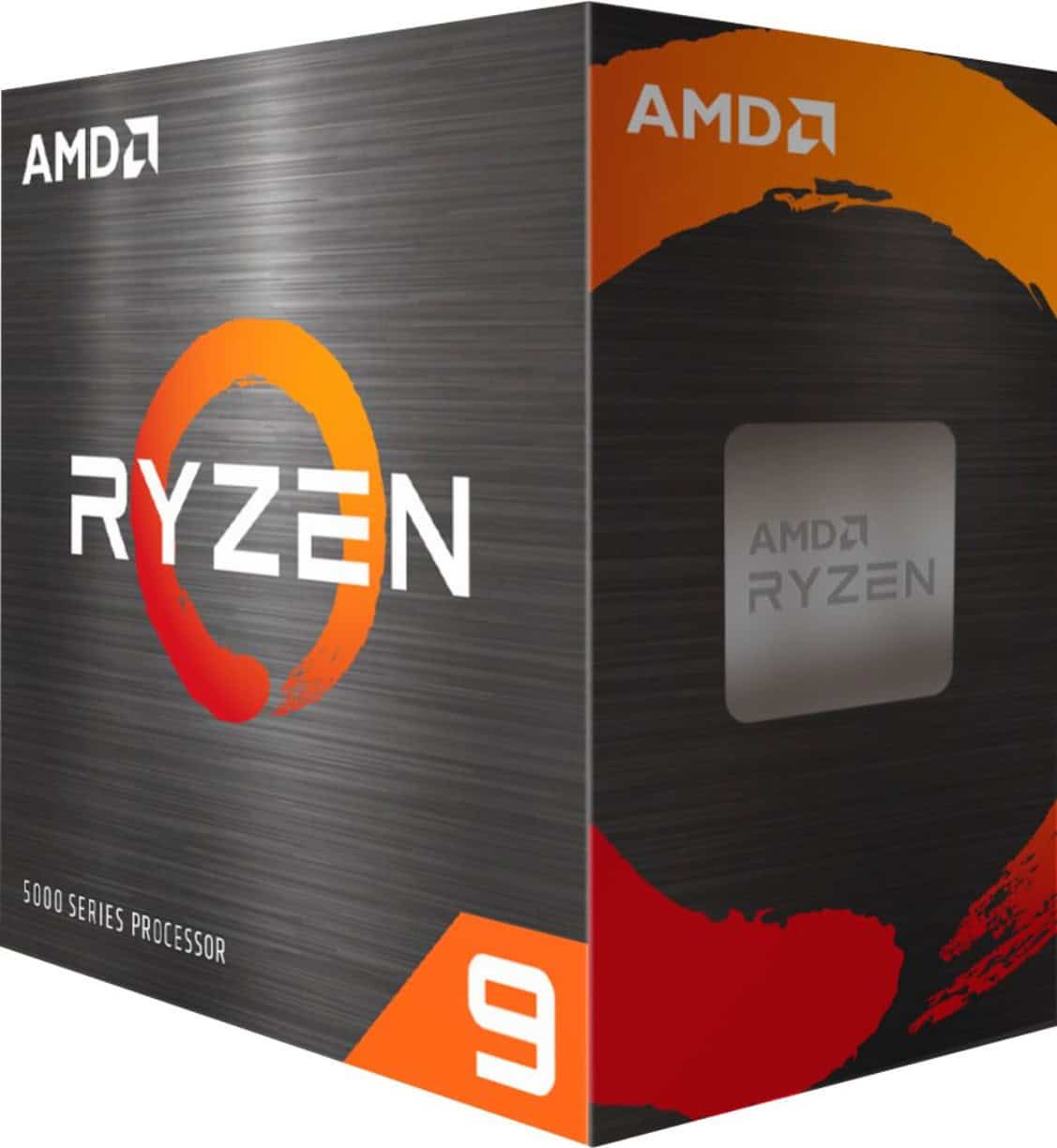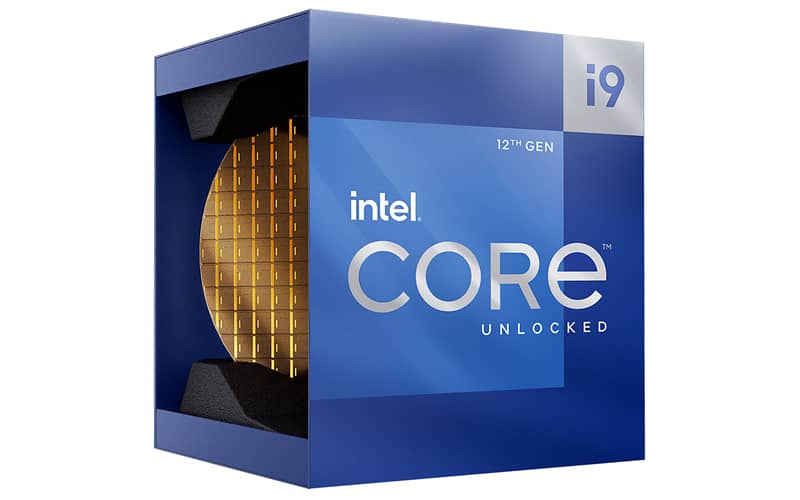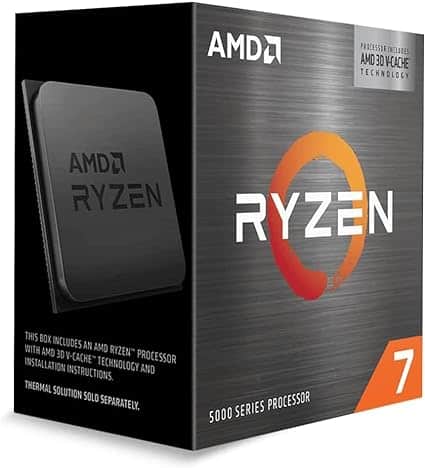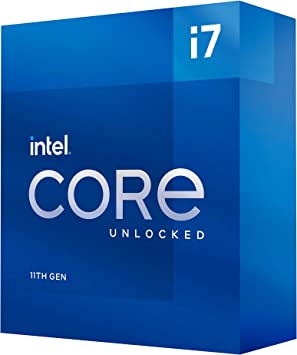Ryzen 9 5900XT vs. Ryzen 7 5800X, how do they compare?

Table of Contents
The Ryzen 9 5900XT has hit the markets, and we're glad to see it followed the schedule as the Ryzen 9000 series is experiencing a delay as they “didn't meet the quality expectations.” That said, the Ryzen 7 5800XT is also released, which has the same specifications as the Ryzen 7 5800X, which begs the question: How would it hold up against the 5900XT? We'll set out to answer that question in this article, so let's get right to it, shall we?
If you want to get your hands on the Ryzen 9 5900XT, check out our Where to Buy 5900XT page, which lists various retailers in one place to save you time and effort.
AMD Ryzen 9 5900XT
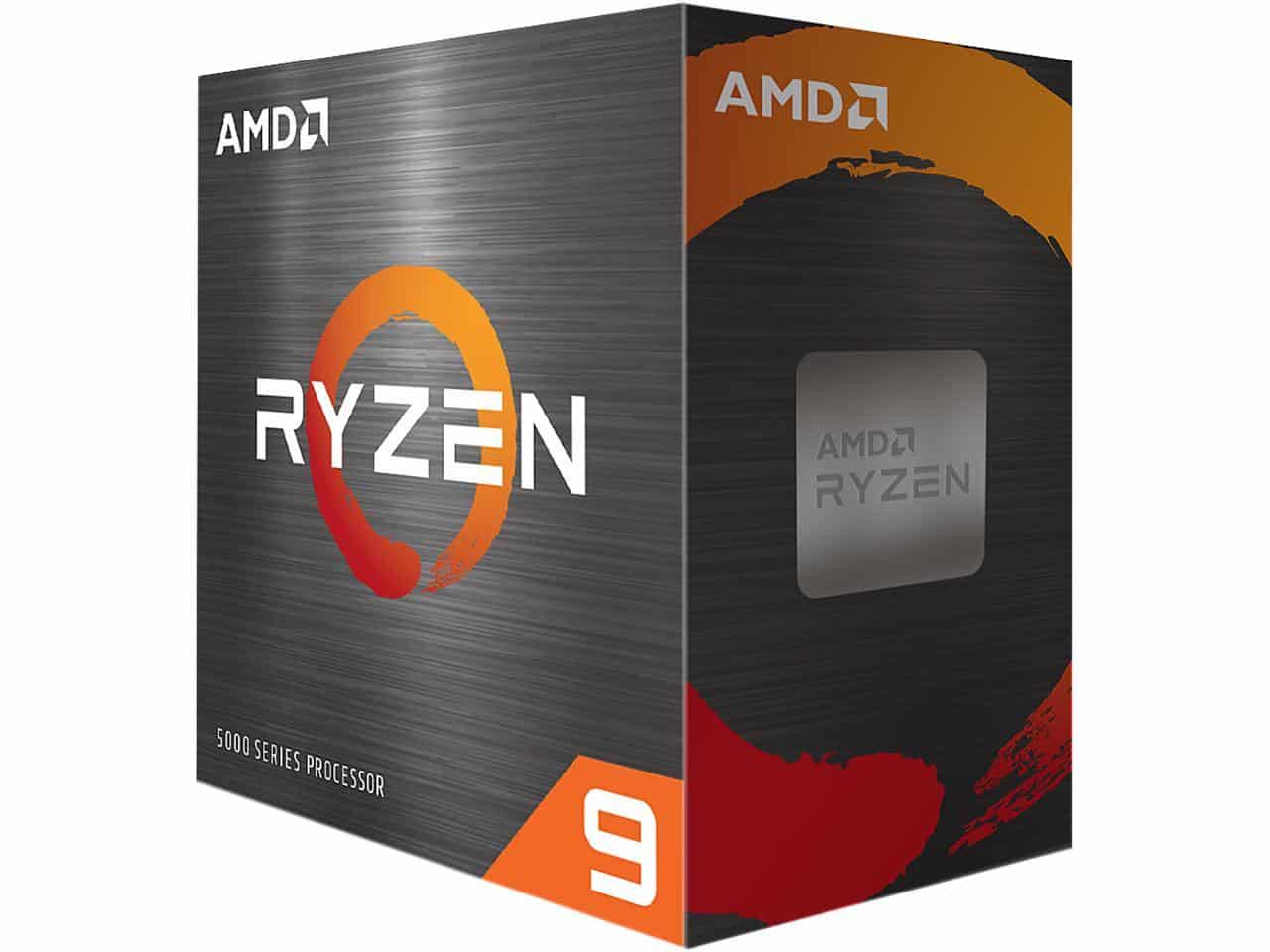
Cores
16
Threads
32
Boost clock speed
4.8 GHz
Base clock speed
3.3 GHz
L3 Cache
64 MB
TDP
105W
Platform
AMD Socket AM4
Shop on Amazon
CHECK PRICEAMD Ryzen 7 5800X
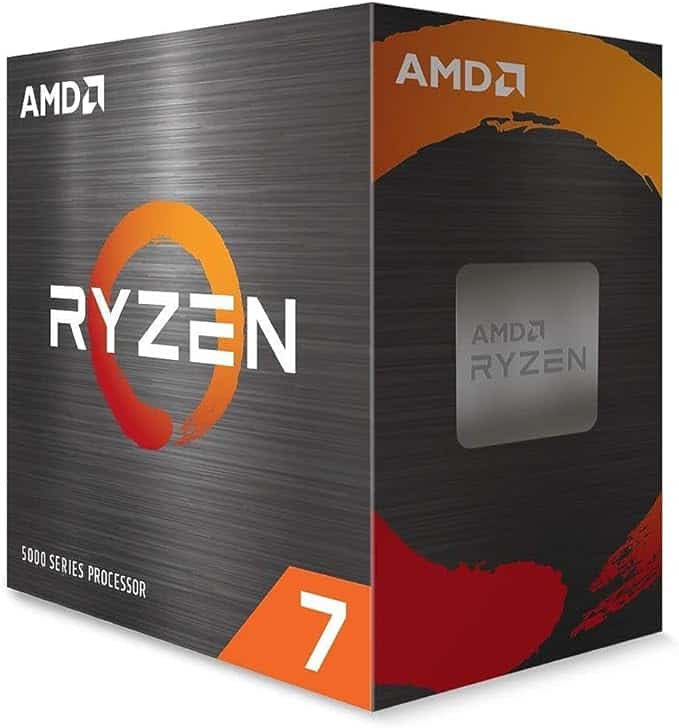
Cores
8
Threads
16
Boost clock speed
4.7 GHz
Base clock speed
3.8 GHz
L3 Cache
32 MB
TDP
105 W
Platform
AMD Socket AM4
Shop on Amazon
CHECK PRICESpecification
To see the hardware difference between the two processors, we've listed their specifications below.
| Specifications | Ryzen 9 5900XT | Ryzen 7 5800X |
| Architecture | Zen 3 | Zen 3 |
| Socket | AM4 | AM4 |
| Process | TSMC 7nm FinFET | TSMC 7nm FinFET |
| Cores | 16 | 8 |
| Threads | 32 | 16 |
| Base clock speed | 3.3 GHz | 3.8 GHz |
| Boost clock speed | 4.8 GHz | 4.7 GHz |
| L3 Cache | 64 MB | 32 MB |
| TDP | 105W | 105W |
| Integrated graphics | – | – |
These processors are from the same generation, so there are plenty of similarities, but the 5900XT comes with more cores, threads, and cache. How much of a difference would this hardware advantage bring? Let's find out.

Foundations and cores
The Ryzen 9 5900XT and the Ryzen 7 5800X are based on the same architecture, which means that they are from the same generation and use the same 7nm CPU process technology.
While they may seem to be on equal footing, the 5900XT has double the cores and threads of the 5800X, giving it an advantage in multi-core processing. This means it should be able to handle resource-intensive tasks better than the 5800X. So, the 5900XT wins in this section due to the sheer numbers advantage.
Clock speed
The clock speed determines how fast a processor can execute an instruction. This means completing the cycle of calling the data, processing it, and giving the output. So, the more a CPU can do this in one clock cycle, the better its performance is.
The 5800X has a much higher base clock speed of 3.8 GHz compared to the 5900XT's 3.3 GHz. This means that it can execute 0.5 million more instructions per second. However, the 5900XT’s boost clock speed is higher, but only by 0.1 GHz. There is always the option to overclock the 5800X to increase its clock speed further, but that will ramp up its power draw and thermal output. In this case, we recommend using the best AIO cooler to keep it running cool.
That said, despite the 5800X’s higher base clock speed, the 5900XT's performance should be better because it has eight extra cores working for it. So, the former had a good chance to overtake, but the latter's juiced-up hardware again gave it the win.
Cache and TDP
The 5900XT has double the cache of the 5800X, meaning it can store more frequently accessed data on-board for quick access and processing. What this means is that it should have better performance efficiency than the 5800X.
The 5800X doesn't have much to fire back with as their process technology is the same, but it has a lower core and thread count. As for their power draw, both CPUs have a 105W TDP, which is fine, but it makes the 5800X less energy-efficient as it has fewer cores and threads.
So, in terms of power efficiency, the 5900XT scores another victory.
Graphic capabilities
There isn't much to discuss about their graphical capabilities as neither CPU has integrated graphics, meaning you'll need to purchase a discrete GPU to complete your system and enable it to start.
That said, if you're interested in exploring some options, check out our best GPU for Ryzen 9 5900XT and the Ryzen 7 5800X for the top picks.
5900XT launch price
With an MSRP of $349, the 5900XT has left many wondering whether we really needed this processor because it has almost the exact specifications as the 5950X, with the latter having a faster base and boost clock speed.
According to camelcamelcamel, you can get your hands on a 5950X for $359. Paying $10 more for a 0.1 GHz increase doesn't make sense, but on Amazon, it's listed at the same price as the 5900XT, which only confuses us more.
So, if you are looking for an upgrade, we recommend going for the processor that costs the least, meaning you might have to wait for a sale for the prices to be slashed.
How have these CPUs changed from the last generation?
| Specifications | 5900XT | 5900X | 3900X |
| Cores | 16 | 12 | 12 |
| Threads | 32 | 24 | 24 |
| Cache | 64 MB | 64 MB | 64 MB |
| Max boost clock | 4.8 GHz | 4.8 GHz | 4.6 GHz |
| Base clock speed | 3.3 GHz | 3.7 GHz | 3.8 GHz |
| TDP | 105W | 105W | 105W |
| Architecture | Zen 3 | Zen 3 | Zen 2 |
The cache and TDP are the only two specifications that are the same across all the processors. The 5900XT has more cores and threads, giving it an edge over the other two. The boost clock is shared between the 5900XT and 5900X with 4.8 GHz, and the 3900X takes the crown for the fastest base clock speed.
The 5900XT and 5900X are based on the Zen 3 architecture, so there isn't much difference between them, while the 3900X is based on the 5-year-old Zen 2 architecture.
As for the 5800X, we only compared it against the 3800X, and there isn't much difference between the two other than the architecture.
| Specifications | 5800X | 3800X |
| Cores | 8 | 8 |
| Threads | 16 | 16 |
| Cache | 32 MB | 32 MB |
| Max boost clock | 4.7 GHz | 4.5 GHz |
| Base clock speed | 3.8 GHz | 3.9 GHz |
| TDP | 105W | 105W |
| Architecture | Zen 3 | Zen 2 |
Both processors have the same cache, TDP, cores, and threads. The 5800X has a 0.2 GHz faster boost clock, while the 3800X has a 0.1 GHz faster base clock. Both differences are minimal, but Zen 3 architecture performs better than Zen 2 for obvious reasons.
Alternatives to the 5900XT and the 5800X
There are some processors that you could opt for instead of the 9600X and the 5900XT, and we've listed them below. We've reviewed some of these alternative options, and you can also check out their in-depth reviews.
5900XT alternatives
-
AMD Ryzen 9 5950X
- Cores: 16
- Threads: 32
- Base clock speed: 3.4 GHz
- Boost clock speed: 4.9 GHz
- L3 Cache: 64 MB
- TDP: 105 W
-
AMD Ryzen 9 5900X
- Cores: 12
- Threads: 24
- Boost clock speed: 4.8 GHz
- Base clock speed: 3.7 GHz
- L3 Cache: 63 MB
- TDP: 105 W
-
Intel Core i9-12900K
- Cores: 16-core (24 threads) (8P+8E)
- Base clock speed: 3.20 GHz (Performance); 2.40 GHz (Efficient)
- Boost clock speed: 5.20 GHz (Performance); 3.90 GHz (Efficient)
- Cache: 30MB
- TDP: 125W
- Max Turbo Power: 241W
-
Intel Core i9-11900K
- Cores: 8
- Threads: 16
- Boost clock: 5.3GHz
- Base clock: 3.5GHz
- L3 Cache: 16MB
- TDP: 125W
5800X alternatives
-
AMD Ryzen 7 5800X3D
- Cores: 8
- Threads: 16
- Boost speed : Up to 4.5 GHz
- Base speed: 3.4 GHz
- L3 Cache: 96 MB
- TDP: 105W
-
Which one should you go for?
Choosing between these processors might seem straightforward, but it’s a bit tricky when you consider that they are based on a platform that is 8 years old now. While AMD has done well in supporting the AM4 platform, I'm not sure whether investing $349 in a new processor would be the right way to go.
That said, if you want to keep your AM4 system running for a couple more years before making the shift, the 5900XT should be a good option. Its higher core and thread count make it a better processor for complex, multi-threaded workloads.
On the other hand, if you don't want to spend that much on a CPU based on a platform with few upgrade options, the 5800X should serve you well as it is a well-rounded processor for gaming and professional workloads.
I talked to Jack Howarth and Seb Kozlowsk to get their two cents, and it turns out that all of us are in agreement over this match-up. This is what they had to say:
The 5900XT is available with 16 cores and 32 threads, double that of the 5800X, this suggests that the 5900XT will dominate in multi-core workloads. And thanks to them both being built on the Zen 3 core architecture the cores are nice and evenly matched.
The 5900XT does have an advantage in core speed by a meekly 100MHz, but it’s base speeds are far lower than that of the 5800X, 3.3GHz vs 3,8GHz.
This was likely done to keep the 5900XT within the 105W TDP bracket and maintain the efficiency that AMD CPUs are known for, but thanks to it’s $339 price tag, I just don’t know if I can actually recommend it.
To put this into perspective, you can get a 7800X3D for the same money, and I don’t know how wise investing in an almost 10 year old platform is at this point. Regardless of how long AMD say they want to keep it in support.
If you have to choose between these two, you can save yourself some money by opting for the 5800X, but if you want more power for complex workloads, you might want to consider the 5900XT. Just wait till it comes down in price first.
Jack Howarth
Based on the same platform, AMD has continued some great support for AM4. Now with the 5900XT coming out there is an uplift in the potential you can get from the processors. When comparing the XT to the 5800X, you get a good change in its capabilities.
The 5900XT doubles up the amount of CPU cores on board that can boost up 100MHz higher than the 5800X. Along with that it doubles up the cache available on the processor for the same amount of power. That means that the XT has a stronger capability in multi-threaded processes and has a lot more cache to play with. That gives it the edge in those needs for faster work.
Of course they’re both on the older platform and not great to get onto but still might be a good upgrade from something older. But if you must choose, the 5900XT is easily the more performance choice, but if you don’t need all the extra cores but just for gaming then the 5800X is fine enough.
Seb Kozlowski


